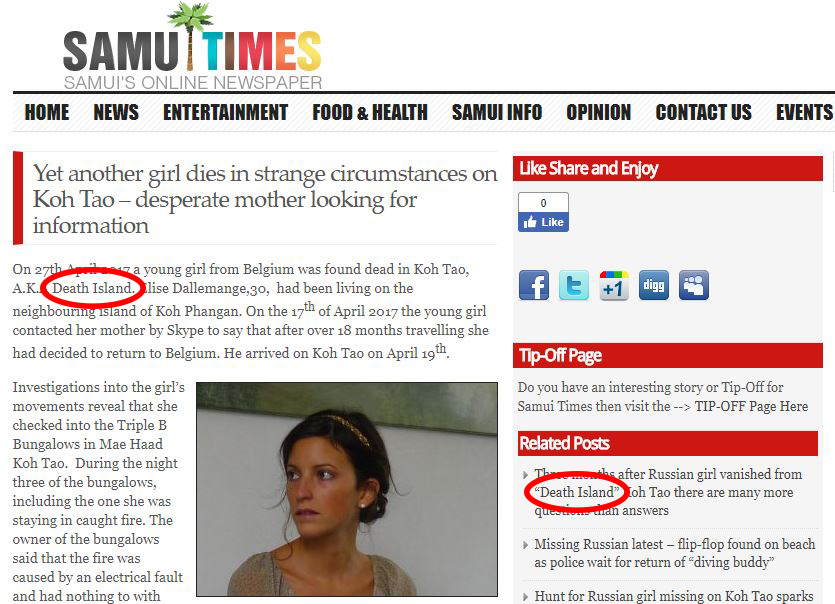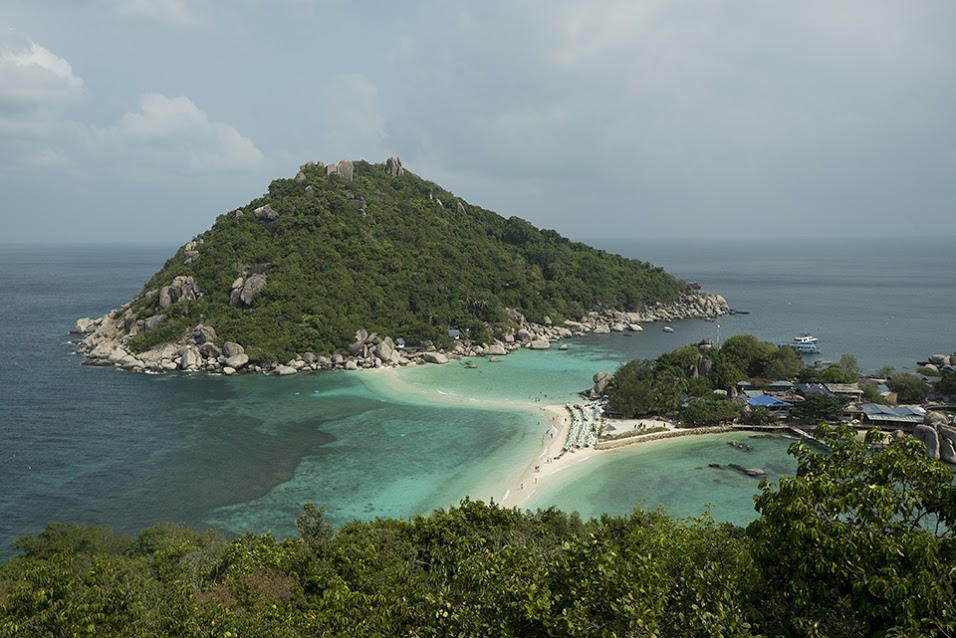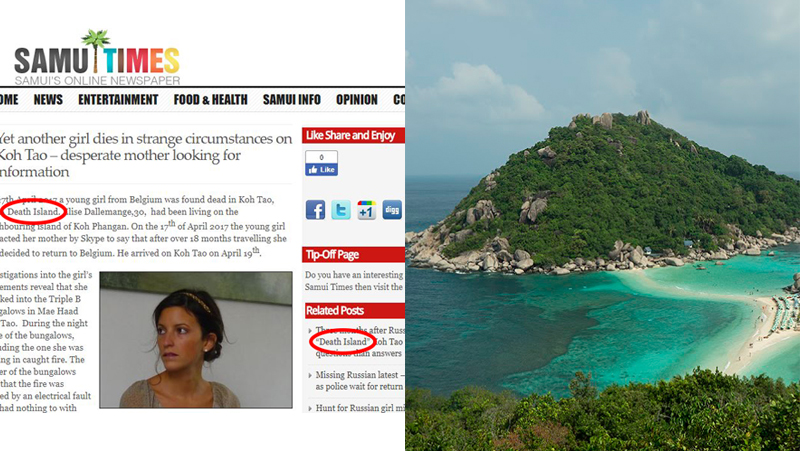Yesterday, the governor of Surat Thani, the oceanside Thai province that includes Koh Tao, told the press he plans to sue online newspaper Samui Times for defamation for dubbing Koh Tao “Death Island.”

The sensational nickname, which references six tourists that have died under mysterious circumstances on the island over the last three years—including the brutal murders of Hannah Witheridge and David Miller in 2014—has since been adopted by news outlets all over the world in the wake of the disappearance of Russian tourist Valentina Novozhenova in March and the doubt-raising death of Elise Dellamagne in April, which made headlines starting last week.
Governor Uaychai Innak said that he has already asked his lawyers to open a case against Samui Times, a small site that publishes (and republishes, ahem) news stories from Koh Samui and the nearby islands, including Koh Tao.

Governor Uaychai is no fan of the “death island” moniker and it’s sure to do damage to Koh Tao’s tourism revenues. However, instead of trying to get to the bottom of all the mysterious foreign deaths on the island, he is holding the news site responsible for the island’s bad image in the press.
He told Matichon, “False accusations and distorted news coverage has directly caused a negative image to the tourism sector in the province. As the provincial governor, I have ordered a collection of evidence regarding the news coverage of Samui Times so that we can file a police report on charges of computer crime.”
In Thailand, the Computer Crime Act, while mainly used for cases of lese majeste, can be invoked in many kinds of cases where someone has had their reputation damaged by something written online.
On the upside, if you believe that all publicity is good publicity, both Koh Tao and Samui Times are having a great week.




